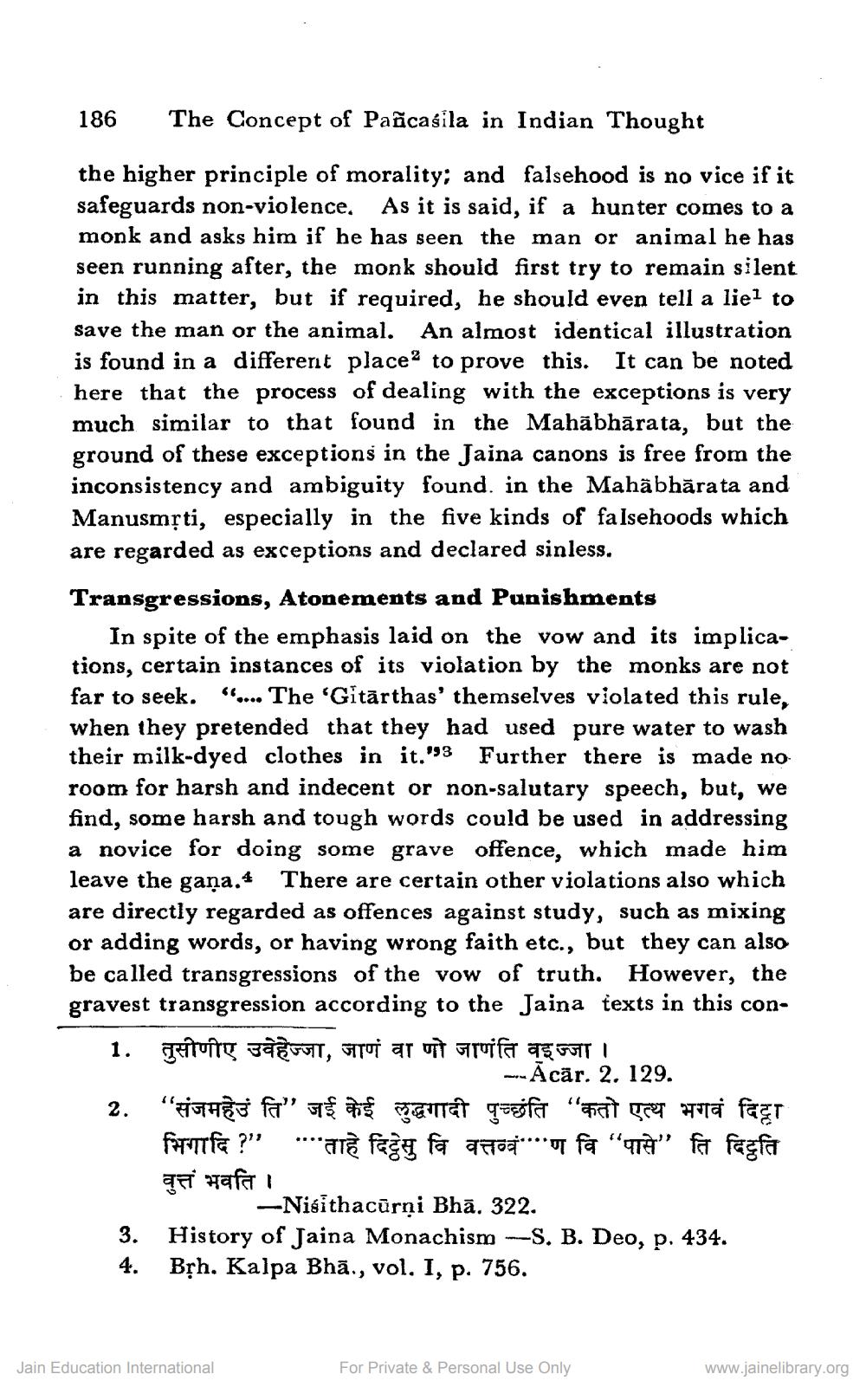________________
186
The Concept of Pañcasila in Indian Thought
the higher principle of morality; and falsehood is no vice if it safeguards non-violence. As it is said, if a hunter comes to a monk and asks him if he has seen the man or animal he has seen running after, the monk should first try to remain silent in this matter, but if required, he should even tell a liel to save the man or the animal. An almost identical illustration is found in a different place to prove this. It can be noted here that the process of dealing with the exceptions is very much similar to that found in the Mahābhārata, but the ground of these exceptions in the Jaina canons is free from the inconsistency and ambiguity found in the Mahābhārata and Manusmộti, especially in the five kinds of falsehoods which are regarded as exceptions and declared sinless. Transgressions, Atonements and Punishments
In spite of the emphasis laid on the vow and its implications, certain instances of its violation by the monks are not far to seek. ".... The 'Gitārthas' themselves violated this rule, when they pretended that they had used pure water to wash their milk-dyed clothes in it."3 Further there is made no room for harsh and indecent or non-salutary speech, but, we find, some harsh and tough words could be used in addressing a novice for doing some grave offence, which made him leave the gana.4 There are certain other violations also which are directly regarded as offences against study, such as mixing or adding words, or having wrong faith etc., but they can also be called transgressions of the vow of truth. However, the gravest transgression according to the Jaina texts in this con1. pituitg saEBUT, TOT AT o grifar as cut I
- Acär. 2. 129. 2. "THEG fa" 78 CT Tafel wat pret Hirai fact
forintf ?" "*are fagg fa fo o t fa "Tth" for fagfal वुत्तं भवति ।
-Niśithacūrni Bhā. 322. 3. History of Jaina Monachism --S. B. Deo, p. 434. 4. Bịh. Kalpa Bhā., vol. I, p. 756.
Jain Education International
For Private & Personal Use Only
www.jainelibrary.org




